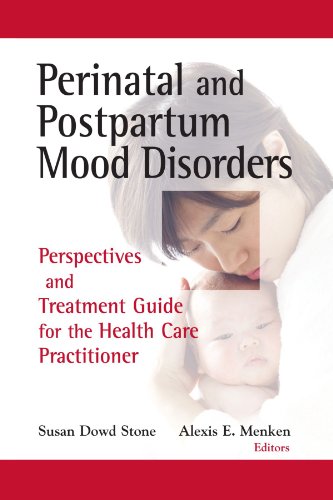

Most ebook files are in PDF format, so you can easily read them using various software such as Foxit Reader or directly on the Google Chrome browser.
Some ebook files are released by publishers in other formats such as .awz, .mobi, .epub, .fb2, etc. You may need to install specific software to read these formats on mobile/PC, such as Calibre.
Please read the tutorial at this link: https://ebookbell.com/faq
We offer FREE conversion to the popular formats you request; however, this may take some time. Therefore, right after payment, please email us, and we will try to provide the service as quickly as possible.
For some exceptional file formats or broken links (if any), please refrain from opening any disputes. Instead, email us first, and we will try to assist within a maximum of 6 hours.
EbookBell Team

5.0
40 reviewsOver the past three years, pregnancy related mood disorders have become the focus of health care advocates and legislators alike with subsequent reflection in nationwide media. Statistics on the prevalence of perinatal mood disorders suggest that up to 20% of women experience diagnosable pregnancy related mood disorders. The growing recognition of these common disorders, coupled with an increasing knowledge base about the dire consequences of untreated maternal depression, has propelled this issue to the fore of national public health priorities.
This increasing awareness has also resulted in recent legislative and healthcare initiatives to screen, assess, and treat such disorders. On April 13, 2006, Governor Jon S. Corzine (D -NJ) signed a law requiring all new mothers to be educated and screened for postpartum depression. This law is the first of its kind in the country, but many states and federal advocates are proposing similar laws. The motivation for states and the federal government to adopt education and screening program is high and may soon be a federal mandate. But a major barrier to successful implementation of such programs is the lack of available resources to train healthcare professionals in this specialty.
This book offers a major resource for healthcare professionals, mental health professionals, and medical, nursing, psychology, and social work students who will be confronting this problem in their practices. The contributions, by renowned experts, fill a glaring gap in the knowledge professionals need in order to successfully manage maternal mental health.